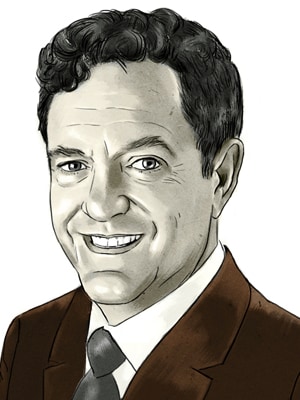
Best sports books for business
Seven books that'll inspire your business canny

Sports books do much better. I’ve found some of the most inspiring books on business are actually, first and foremost, sports books. Here are seven great ones that will get your business juices flowing.
They Call Me Coach—by John Wooden with Jack Tobin (McGraw-Hill Education, $18). The great UCLA basketball coach wrote several books. Many more were written about him. The Wooden success formula in all of them is dirt simple: Preparation, hard work and integrity. But what do these mean in practice? How do you keep players motivated when you’re saying the same thing each day? How do you handle a star who bucks the system? It’s the details about the hard questions that make Wooden’s book an all-timer.
The Score Takes Care of Itself—by Bill Walsh (Portfolio, $17). When Steve Forbes hired me in 1992 to start a futurist magazine called Forbes ASAP, I recruited Bill Walsh, the retired 49ers coach, to write a column. I would visit Walsh, and he’d tell stories. How he hit upon the idea of his West Coast offense. Why he drafted Joe Montana after every other NFL team had passed on him. How every winning organisation has what Walsh called a “standard of excellence” and how you establish that on day one. When to crack down and when to keep it light. Walsh’s book brings all of these lessons together.
The Boys in the Boat—by Daniel Brown (Penguin Books, $17). If you’re a fan of the late Bud Greenspan’s Olympics documentaries, you already know that a US eight-oar crew team won Gold at Hitler’s 1936 Berlin Olympics. Brown’s enduring bestseller tells the rest of the story. The US team came from the University of Washington, a rowing backwater. Its members weren’t from prep schools; they were Depression kids. One was kicked out of home at age 10 because there was too little food. Against all odds, the poor boys grew into men. And the men learned to row as one.
Seabiscuit—by Laura Hillenbrand (Ballantine Books, $17). Of Hillenbrand’s two inspirational bestsellers—Seabiscuit and Unbroken—I found Seabiscuit to be the better business story. For one, horse racing was at its popular peak in the 1930s, as big as baseball and boxing. For two, Seabiscuit was the most unlikely of champion horses. He was small and knobby-kneed and made a poor first impression, much like the undernourished Depression masses who cheered him. The horse’s owners got him for a bargain. And Seabiscuit had a foil—the equestrian world’s princely incumbent—in War Admiral. The duel of horses in a world that has largely forgotten about horse racing resonates today. The story is eternally appealing: The undercapitalised nobody startup taking on a big incumbent.
Shoe Dog—by Phil Knight (Scribner, $29). The founder of Nike recounts the years from 1962, when 25-year-old Knight began importing Japanese running shoes called Onitsuka Tigers (today known as ASICs), until 1980, when Nike went public. At every step Nike is on a knife’s edge of good news and bad, of doubling revenue rates yet near-fatal cash shortages. Knight’s memoir rings true throughout, with implausible characters, such as an emotionally needy shoe designer and an overweight and unfit executive. Knight is also candid about his own shortcomings.
Moneyball—by Michael Lewis (WW Norton & Co, $15.95). No other writer of our generation bestrides the worlds of sports and high finance like Michael Lewis. His story on how the Oakland A’s general manager Billy Beane used deep stats and analytics to create a winner on the cheap is well known. And widely practiced. Donald Trump’s son-in-law, Jared Kushner, described Trump’s thinly financed campaign and its little-known reliance on data analytics as Moneyball tactics.
Into Thin Air—by Jon Krakauer (Anchor, $16). Earlier this year I had a chance to meet Beck Weathers, the Texas pathologist who was left for dead during the 1996 attempt to climb Mount Everest. Weathers gave the most inspiring speech I’ve heard at a business event. Into Thin Air will likewise inspire you with courage—and frighten you with its stories of bad judgment. As goes peak scaling, so goes business: It’s all about preparation, hard work, focus and will. But, most of all, good judgment.
Rich Karlgaard is the publisher at Forbes
(This story appears in the 30 November, -0001 issue of Forbes India. To visit our Archives, click here.)
X





